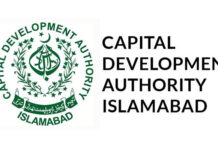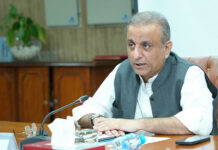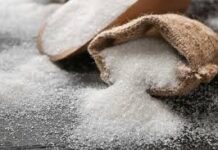KARACHI: Pakistan Sugar Mills Association (PSMA) has rejected the findings, conclusions and recommendations of the report issued by the Sugar Inquiry Commission, terming it “a premeditated exercise to malign a lawful and taxpaying industry that has an enormous social and economic foothold in Pakistan”.
In a statement issued on Friday, PSMA also strongly objected the unnecessary publicity being given to the report for extraneous and dubious reasons and ensuing media trial of the entire sugar industry.
PSMA blamed the commission for repeating the mistakes of the earlier committee by targeting the entire industry with generalized and unsubstantiated aspersions and allegations.
“The report is farcical and deliberately twisting the facts to suit the preconceived conclusions of the commission. All written submissions of the PSMA remained completely ignored,” the association maintained.
Pointing out some “glaring, elementary and conceptual errors”, PSMA said the commission had incorrectly alleged, without any proof or evidence, that difference between sugarcane produced and sugarcane crushed is due to “off-the-books” purchase. In fact, as also acknowledged by the commission, a significant portion of the difference is due to the production of “gurr”, which is not documented/verifiable. Furthermore, at least 10pc of sugarcane production is retained as seed, fodder and for other miscellaneous purposes (never sold to mills).
“Astonishingly, the commission claimed that ‘variation in ex-mill prices over the course of the year are completely unfounded’. As per the commission’s erroneous understanding, the ex-mill price of sugar should stay constant throughout the year. The commission refuses to acknowledge the role of ‘market forces of supply and demand’ on grounds that help meet the total demand in the country. The complete lack of economic, commercial and financial understanding of the commission is shocking,” the PSMA statement read.
It continued, “Contrary to all relevant accounting practices and norms, nine different categories of genuine costs have been completely excluded by the commission while determining the cost of sugar sold, and hypothetical/unearned income on account of by-products has been included.”
The commission has no understanding of ground realities of sugar sector, including cane procurement and crushing. Since they admittedly started their exercise near the end of the crushing season and did not witness crushing activities first-hand, they remain unaware of the actual complexities involved, including huge volume of daily transactions.
Sucrose content of cane will vary even from field to field and stalk to stalk. Furthermore, numerous other factors in addition to sucrose content of cane will affect actual sucrose recovery ratio of a sugar mill. It is an entirely unrealistic, impractical and naïve expectation that sucrose recovery ratio of any mill can accurately be determined by sample testing in labs of cane being crushed by the mills.
Expounding further on one of the biggest fallacies in the report, PSMA called the costing exercise carried out by the commission as completely “nonsensical” and “fictitious”. Even finance costs which constitute almost one-third of the cost of the sugar industry after sugar cane payments have been excluded by the commission with no plausible reason or justification.
It questioned as to how can an industry that has to pay for raw material in three months and sell its end product over twelve months works without finance costs?
“The primary intent behind the commission’s approach seems to be to calculate an artificial low cost of production, only to be used as a basis to substantiate and reiterate the incorrect allegations earlier raised against the sugar mills in the committee report of March 24, 2020,” said PSMA Chairman Aslam Faruque said. “No business can survive on the production cost model like the commission suggests, and even that was calculated entirely wrong. The technical and accounting incompetence of this exercise is mind-boggling.”
PSMA challenged the commission to justify/prove its treatment of by-products and exclusion of genuine costs in the costing model before any competent accounting forum.
It also strongly criticized the attempts of the commission to cast suspicion on declared and genuine sales and advances from buyers and reclassify them as “benami” and “satta” transactions without any proof or evidence.
























